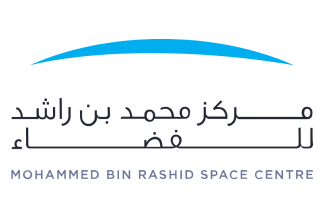
The Mohammed bin Rashid Space Centre (MBRSC) was established in 2015, as an integral component of the strategic initiative aiming to support scientific innovation and technological advancement, to advance sustainable development in the United Arab Emirates.
The Centre is responsible for the “Hope Probe” exploration project, which was launched in the 20th of July 2020 to reach Mars by 2021, coinciding with the 50th anniversary of the establishment of the union of the United Arab Emirates. This is a historic project representing the hopes and dreams of the Arab world in space. MBRSC has also launched “KhalifaSat” in 2018, and it is considered the most advanced satellite launched by the UAE into space.
The Centre has made many achievements, most importantly, launching DubaiSat-1 and DubaiSat-2 in 2009 and 2013, respectively. Both observation satellites are currently orbiting the earth and snapping pictures as per instructions directed to the Earth station within the center. MBRSC also successfully launched Nayef-1, the first Emirati Nanosatellite, launch to outer space in early 2017.
For more information about MBRSC, please visit the official website through this
link Established in 2006, the Mohammed Bin Rashid Space Centre (MBRSC) started out with five engineers, who took it upon themselves to develop their capabilities and expand their knowledge in the field of space, relying on strong will and solid determination. Since then, the center has continued its journey to be the incubator of the “UAE National Space Program”. The MBRSC has undertaken the tasks of building, developing, and operating a number of Earth observation satellites, providing imaging services, analyzing and studying them, as well as producing relevant data to scientific communities and research centers around the world. Among the satellites that the center operates are DubaiSat-1 & DubaiSat-2. The MBRSC is also responsible for Khalifa Sat, celebrated as the first satellite that was fully built by Emiratis in 2018. The Centre is also developing the new satellite MBZ-SAT, which is expected to be launched by the end of 2023 and will be one of the world’s most high-accuracy, high-resolution imaging satellites.
Among the MBRSC’s initiatives is the Emirates Mars Mission, “Hope Probe”, which became the first Arab mission to reach the Martian orbit in 2021. The mission aims to collect basic scientific data about the Martian atmosphere, gathering vital scientific data enabling the planet’s atmosphere to be quantified and analysed. The Emirates Mars Mission frames the development of the “Mars 2117” program, which will lead to the construction of the first human settlement on the Red planet. The center also launched the Emirates Lunar Mission, “Rashid rover”, making the UAE the first Arab country, and the fourth globally, to mandate projects of this kind, and it is expected to be launched before the end of 2022.
To provide these projects with qualified national skills, the MBRSC launched the “UAE Astronaut Program”, which was established in 2017. The first Emirati astronaut, Hazzaa AlMansoori, who undertook a scientific mission to the International Space Station (ISS) in 2019, was a graduate of the program. Other Emirati astronauts that have graduated from the “UAE Astronaut Program” are Sultan AlNeyadi, Mohammed AlMulla, and Nora AlMatrooshi, the first Arab female astronaut.
The center has also recently announced the first long-duration mission, that will send an Arab astronaut to the ISS for 6 months, occurring this year.
The MBRSC hosted the 72nd edition of the International Space Conference in 2021, the first time the region has hosted this event since its launch. The centre will host the 17th edition of the International Space Operations Conference 2023 (SpaceOps) in Dubai next year.